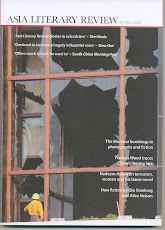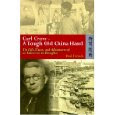
This incredible year of anniversaries in China rolls on today. It can be argued that modern China really began, or at least showed itself formed to a degree, on 4th May 1919 with the protests following China’s disappointment after its betrayal at the Versailles Peace Conference. Despite pledges that every country would be represented, China was not. The European Great Powers and America did not apply any more than cursory pressure on China’s behalf and Japan retained the “special rights” it had snatched from the Germans in Qingdao and Shandong.
The seats at Versailles reserved for the Chinese delegation were never occupied and the Chinese decided not to sign in protest against the clauses in the treaty agreeing to the transfer of German leaseholds to Japan. On 4 May, angered at the betrayal and fired up with a justified nationalist fervour, radicalised students staged largescale demonstrations across China. These were the first mass protests in modern Chinese history (as in Peking left) and in many ways set the hallmark for the 1920s as a decade of domestic protest and internal unrest — what became known as the May Fourth Movement.
Among the foreigners who actually observed the 4th May events a few stand out as interesting I think. Not least Dr. Paul Reinsch, the US minister to China. Reinsch, who was generally pro-Chinese, had been angered by Japan’s 21 Demands on China during WW1. He felt personally compromised by America’s lack of support for China in Paris despite Wilson’s pledges and resigned in 1919 to take up a post advising the Chinese government in Washington. The great Bill Donald – Donald of China - who was briefly editing the Far Eastern Review penned a lengthy editorial sympathetic to the May Fourth Movement.
Also interesting was the pioneering American missionary Frank J. Rawlinson, who developed a brand of liberal Protestantism after becoming involved in the May Fourth Movement. Rawlinson had been born into a Plymouth Brethren family but arrived in China in 1902 as a Southern Baptist missionary and remained based in Shanghai for his entire career until his death in 1937. After becoming radicalised, he split with the Southern Baptists and joined the American Board of Commissioners for Foreign Missions. In 1914 he became the editor of the interdenominational Chinese Recorder, which under his tutelage reflected his liberal and often outspoken views forged in 1919.
I think the best foreign chronicler of the May Fourth Movement at the time was Pennsylvanian native and Harvard graduate Rodney Yonkers Gilbert, who had come to China as a medicine salesman in 1912 before becoming a long-standing Beijing-based reporter for the North-China Daily News. Gilbert covered the May Fourth demonstrations in the city and attended the lively and raucous meetings held at Peking University. He seemed to be broadly supportive of the student’s anti-Japanese stance, or at least applauded their decision to organize and take action, writing: “The advertisement given to this gathering inspired the local students to do something on their own account, and whatever one thinks of the action they eventually took they certainly deserve full credit for being the first in China to substitute action for talk”.
However, Gilbert was an extremely contradictory character. His initial enthusiasm would later become tempered with cynicism. He concluded his 1926 book What’s Wrong with China, which was widely read at the time, with the passage: “We have therefore to be grateful to the firebrand element in China which is driving furiously on towards the complete ruin of China as a nation, the utter collapse of foreign trade with this bad-boy people, and very possibly the martyrdom of those of us who are foolish enough to live in China: and out of great weariness of the spirit and something like Petronian good cheer in the face of what is coming, our toast is: ‘More power to their elbows!”’
I’d also note Joseph Washington Hall in Tianjin for May 4th. Hall worked for the American Legation’s espionage service in Shandong from 1916 to 1919. He left the service in time to observe the student protests in Tianjin, which he supported, as a journalist. He freelanced for the China Weekly Review and as a Beijing correspondent for the China Press using the penname Upton Close.








7 comments:
He ended his 1926 book, What's wrong with China, which was widely read during the transition: "We must be grateful for the fire element in China, the race to the fury of the ruin Complete China as a nation, the total collapse of trade with this bad boy-people, and most likely the martyrdom of us who are crazy enough to live in China
Tera Gold
RS Gold
Cheap tera gold
Cheap Tera Gold
buy runescape gold
Tera gold
tera online gold
cheap tera gold
Tera account
We must be grateful for the fire element in China, the race to the fury of the ruin Complete China as a nation, the total collapse of trade with this bad boy-people, and most likely the martyrdom of us who are crazy enough to live in China.
RS Gold
Eden Gold
WOW Gold
Tera Gold
Buy Tera Gold
This is so exciting! Can't wait for the Special Friends edition.Thanks for the links big bro!I just want to say that you're doing a great job, keep it up!
I truly would like My partner and i hadn't observed this kind of while i want 1 currently!
http://webyrsgoldfs.com/
http://newstyless.com/
The seats atRunescape Gold Versailles reserved for that chinese language delegation are actually in no way occupied as well as the chinese language chose to not alert in protest versus the clauses within the treaty agreeing in route of the transaction ofBuy Cheap RS Gold
German leaseholds to Japan.
Other than taking into consideration the sizing and dog collars and leashes style with regards to your puppy, you might want to think about the special relief medication disorders. As an illustration, your canine can be suffering from reactions. It's essential to pick up hypo-allergenic as well as small dog collars machine-washable canine beds.
Post a Comment